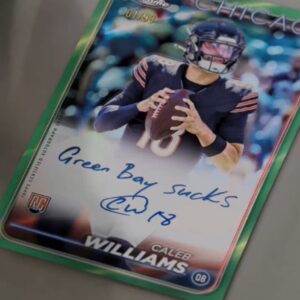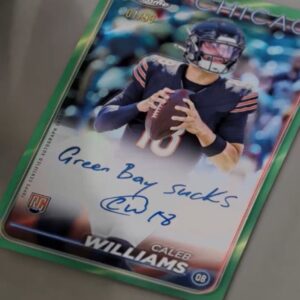The world of video game collecting has undergone a significant transformation in recent years with the emergence of Wata Games. This company, specializing in the grading of video games, has revolutionized how games are appraised and valued, playing a pivotal role in the increasing popularity of video game collecting as a serious hobby and investment.
Prior to Wata Games, the video game collecting community lacked a unified system for verifying and grading the condition of games. This inconsistency made trading and valuing games a risky endeavor. But with Wata’s entry into the market, a level of professionalism and reliability similar to what PSA and ISA did for sports cards was introduced.
The introduction of professional grading services by companies like Wata has led to a surge in the popularity of video game collecting. Collectors now have a reliable way to assess the condition of games, whether they are sealed and boxed or cartridge-only formats. This newfound reliability has attracted new collectors and investors, who see video game collecting not just as a hobby but as a form of valuable investment.
To get a video game graded by Wata, collectors submit their games to the company where they are carefully evaluated based on condition, completeness, and overall quality. Wata provides a detailed grading report and encases the game in a tamper-proof, UV-resistant display case. This process not only preserves the game but also enhances its display and potential resale value.
For those looking to sell their graded games, Otia Sports specializes in purchasing rare and high-grade video games. Selling to Otia Sports can be a straightforward way for collectors to monetize their collections, especially for high-ticket items.
The impact of Wata’s grading system is most evident in the record-breaking sales at auctions. Some notable examples include a sealed copy of Super Mario Bros. for the NES, graded by Wata, which sold for $660,000 in April 2021, setting a new record for the highest amount ever paid for a video game. Another landmark sale was a sealed copy of The Legend of Zelda for the NES, which fetched $870,000 at auction. The high grade from Wata significantly contributed to its high valuation. Additionally, a sealed copy of Super Mario 64 sold for an astonishing $1.56 million, further showcasing the booming market for collectible video games.
The emergence of Wata Games has dramatically changed the landscape of video game collecting, bringing a newfound level of professionalism and standardization to the field. The rise in popularity of collecting and the significant sales at auctions highlight the growing recognition of video games as valuable collectibles and investments. As the market continues to mature, the role of companies like Wata and Otia Sports will be pivotal in shaping the future of video game collecting.
The growth in video game collecting, facilitated by Wata’s grading services, has expanded the market to include a diverse range of collectors. From nostalgic gamers seeking to own a piece of their childhood to serious investors looking for the next big collectible, the market now encompasses a broad spectrum of enthusiasts. This diversity has led to an increased demand for rare and vintage games, driving up their value and appeal.
Another critical aspect of Wata’s impact is the emphasis on preservation. By grading and encapsulating games, Wata has played a crucial role in preserving the physical condition of these games. This preservation is vital, not only for maintaining the value of the games but also for ensuring that a crucial part of digital entertainment history is safeguarded for future generations.
Wata Games has also assumed an educational role in the collector community. Through its grading services and resources, Wata educates collectors on the importance of game condition, rarity, and provenance. This education has led to a more informed collector base, which in turn has contributed to the stabilization and growth of the market.
Despite its positive impact, Wata’s rise has not been without challenges and criticisms. Some collectors express concerns about the costs associated with grading and the potential for overemphasis on the monetary value of games, possibly overshadowing the sentimental and historical value. Additionally, the rapid increase in prices for graded games has led to debates about market sustainability and the risks of speculative investing.
Looking ahead, the future of video game collecting and Wata’s role in it appears promising. As video games continue to be recognized as an integral part of popular culture and entertainment history, the demand for rare and vintage games is likely to remain strong. Wata’s standardized grading process and the growing interest in video game collecting suggest that this market segment will continue to evolve and expand.
Furthermore, Wata’s emergence has had a broader impact on gaming culture. It has elevated the status of video games from mere entertainment media to collectible art forms. This shift in perception has contributed to a greater appreciation of video games and their place in the cultural and historical landscape.
For many, the allure of video game collecting lies at the intersection of passion and investment. While the potential financial returns are appealing, the true joy for many collectors comes from owning a part of gaming history. The work of Wata and Otia Sports has provided a platform for this passion, enabling collectors to preserve, showcase, and potentially profit from their collections.
In conclusion, the emergence of Wata Games has been a game-changer in the world of video game collecting. By providing a trusted grading system, Wata has not only enhanced the value and preservation of video games but has also helped legitimize them as a significant category of collectibles. As the market for vintage video games continues to grow, Wata’s role in shaping this space will undoubtedly be a focal point for collectors, investors, and gaming enthusiasts worldwide.






